



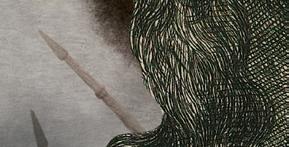


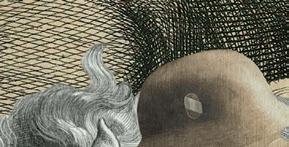



















































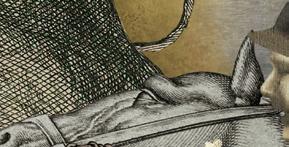





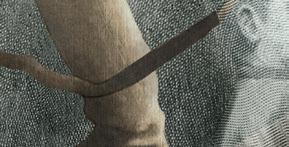
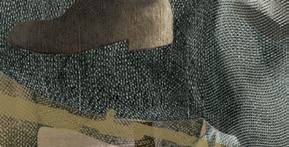




















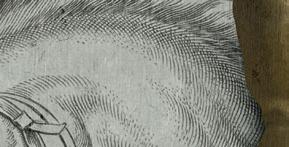
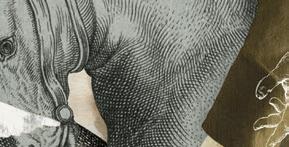
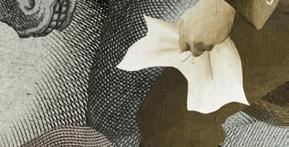
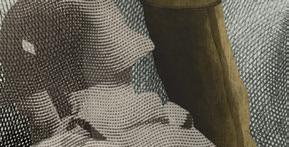
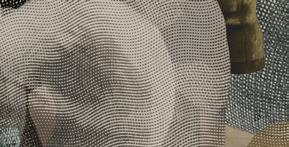















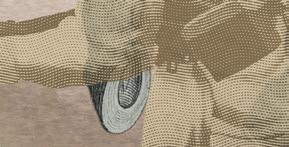

















Alexander Lernet-Holenia was born in Vienna in 1897. He served in the Austro-Hungarian army in the First World War and became a protégé of Rainer Maria Rilke. During his life he wrote poetry, novels and plays and was a successful screenwriter. His books were included on the first Nazi blacklist and subsequently burned, but after the Second World War he again became a vital figure in Austrian cultural life.
Robert Dassanowsky (1965–2023) was Professor at the University of Colorado, Colorado Springs, an independent film producer, former President of the Austrian Studies Association, and author of Austrian Cinema (2005), New Austrian Film (ed.; 2011), World Film Locations: Vienna (ed.; 2012) and Screening Transcendence: Film under Austrofascism and the Hollywood Hope 1933–1938 (2018). He was a member of the European Film Academy and a fellow of the Royal Historical Society.
John S. Barrett (b. 1935) is a translator, reviewer and retired cardiologist. He has translated Grete Weil, Heimito von Doderer, Christa Wolf and Hanna Johannsen, among others. His translations have won the American Literary Translators’ Association Award, the Koret Foundation Award and the Batchelder Award for Children’s Literature.
Translated by Robert Dassanowsky and John S. Barrett
PENGUIN BOOKS
UK | USA | Canada | Ireland | Australia
India | New Zealand | South Africa
Penguin Classics is part of the Penguin Random House group of companies whose addresses can be found at global.penguinrandomhouse.com.
Penguin Random House UK
One Embassy Gardens, 8 Viaduct Gardens, London SW 11 7BW penguin.co.uk
Mars im Widder first published 1947
This translation first published in Penguin Classics 2025 001
Copyright © Alexander Dreihann-Holenia and Adelphi Edizioni S.P.A., Milano, 1983
Translation copyright © Robert Dassanowsky and John S. Barrett, 2025
Penguin Random House values and supports copyright. Copyright fuels creativity, encourages diverse voices, promotes freedom of expression and supports a vibrant culture. Thank you for purchasing an authorized edition of this book and for respecting intellectual property laws by not reproducing, scanning or distributing any part of it by any means without permission. You are supporting authors and enabling Penguin Random House to continue to publish books for everyone. No part of this book may be used or reproduced in any manner for the purpose of training artificial intelligence technologies or systems. In accordance with Article 4(3) of the DSM Directive 2019/790, Penguin Random House expressly reserves this work from the text and data mining exception.
The moral right of the author and translators has been asserted
Set in 11.25/14pt Dante MT Std
Typeset by Six Red Marbles UK , Thetford, Norfolk
Printed and bound in Great Britain by Clays Ltd, Elcograf S.p.A.
The authorized representative in the EEA is Penguin Random House Ireland, Morrison Chambers, 32 Nassau Street, Dublin D 02 YH 68
A CIP catalogue record for this book is available from the British Library
ISBN : 978– 0– 241– 67446– 8
Penguin Random House is committed to a sustainable future for our business, our readers and our planet. This book is made from Forest Stewardship Council® certified paper.
In the original version of the novel, the German word used to describe Lieutenant Wallmoden’s military unit is ‘Schwadron’, usually applied to cavalry units such as that in which the author served during the First World War. While one may speculate as to why he chose that term to describe the infantry unit in which his protagonist served in the opening days of the Second World War, for most English-language readers, translating it as ‘squadron’ might well cause consternation owing to that word’s more usual application to formations of aeroplanes. Hence it has been replaced in this translation by ‘company’, the term currently used to designate a military formation of similar size. The lingering aura of the age of cavalry is preserved nonetheless in some of Lt. Wallmoden’s ruminations, and by leaving untranslated the German rank ‘Rittmeister’, the old term for a cavalry captain, though the officer bearing that title is fighting as an infantryman. Likewise, the term ‘Colonel Proprietor’ has been retained on page 10 for its archaic flavour, designating a nobleman who raised and led a regiment in the distant past, chose its officers, and presumably shared in its booty.
The German names of the towns, villages and rivers encountered in the military campaign, some no longer in Poland, have been altered to reflect the spelling in English-language reference sites. The names of the two main characters, Wallmoden and
Translator’s Note
Pistohlkors, have been borrowed from real families of some distinction, a frequent practice of the author.
Mars in Aries is a tale laced with mysteries, the first of which confronts the reader in the opening sentence: why did the author introduce Lt. Wallmoden as the book’s ‘main character’, then add the small aside ‘(to avoid calling him “the hero”)’? That aside, moreover, was added sometime between the banned 1940 edition and the edition that became available in 1947. As always with Lernet-Holenia, this enigma is left in the hands of the reader.
The long Latin passage on page 119 is taken from the Vulgate Bible. Readers wishing for a translation will find it in Revelation 9, but will then be confronted by another enigma: what did the author intend by including those words and, further, by excluding others in the same biblical chapter?
Many thanks to Professor Oscar E. Swan of the University of Pittsburgh for his invaluable help in sorting out the current spelling of Polish and Ukrainian place names.
John
S. Barrett, September 2024
The novel Mars im Widder was written between 15 December 1939 and 15 February 1940. Shortly thereafter, under the auspices of my friends Paul Wiegler and L. E. Reindl, it appeared, before its official publication, in a magazine of the Berlin publisher Deutscher Verlag. The preprint drew so much attention, not only in Germany, but also from the troops in the field (if in fact it was read the way I meant it to be), that the 15,000 copies of the book produced in Leipzig for S. Fischer Publishers in the Spring of 1941 were banned by the Propaganda Ministry and the Wehrmacht. The entire print run was hidden, but it was destroyed during an air raid on Leipzig in winter 1943/1944. One single copy in my possession was kept safe. Using it as a model, with only a few minor stylistic improvements, the text is now being republished.
Alexander Lernet-Holenia
At the start of the summer of 1939, the principal character (to avoid calling him ‘the hero’) of this factual report, a certain Wallmoden, decided to join a mandatory military training exercise on 15 August. It would, however, have been difficult for him to say why he had chosen that point in time rather than another. It had been left up to him; he could just as easily – more likely in fact – have decided on 1 September, which, accordingly, would have made a great difference. And no one would have objected if he’d reported on 15 September or even as late as 1 October. As stated, however, he’d already joined his regiment on 15 August. Later, he explained that he’d simply settled on that date. How he’d settled on it, he was unable to say. He was only able to say that he’d had the feeling that he was expected there, on that day. But by whom? It wasn’t really possible that they were expecting him at regimental headquarters. As yet, no one there knew him, and even without him, their deployment most certainly would not have been delayed.
Probably his deliberations and assessment had been of a different sort entirely – and perhaps life in general only goes on because it is based on similar – but in any case completely unconscious – decisions. If people were merely dependent on their ability to comprehend things, they would obviously not even reach the age at which it would be possible for them to put that comprehension to use. Admittedly, some people claim
that one’s way of life is merely dependent on one’s own will and that all other views amount to nothing more than fantasy. But there are also those who would have you believe that the lot of the living is cast solely by fate. Every existence is likely dependent on both. And yet, the two realms of power, that of will and that of fate, are incongruent. They never overlap completely. Only one thing is certain: that these spheres impinge upon one another, so that fate serves will and that, ultimately, will only serves fate – of which the following might be an example.
As Wallmoden was making preparations to leave his house, he thought he felt that this time his departure had greater significance. Of course, a human being’s feelings towards beloved people or things are always bound up with the fear of loss, and thus one is, in essence, constantly leaving a loved one or a home, so that at the moment of actual parting, the farewell is already so well-rehearsed that it almost seems easy. Wallmoden, however, did not find leaving his home at all easy this time, and he suffered from the unclear and even unfathomable feelings that this departure conjured up – indeed, for the first time, he experienced a sensation that would later recur frequently and even more forcefully, as if something, like a seam or tuft of his clothing, had been caught up in the cogwheels of events, which were pulling him in, and in which he would be constantly twirled around and around . . . For instance, if he stood at the window and looked into the garden, he felt that the garden had already settled its account with him and its leaves were rustling, indifferently, under a cloudy sky, for someone else. And as he walked through the rooms, the sight of the pictures of the people from whom he’d descended provided no solace, but, rather, gazed back at him a little mockingly, even dismissively, with raised eyebrows, as if to say that they could not begin to
understand his mood nor his distressing doubts which they had never experienced. Go, they seemed to be saying, just go! If you haven’t left, then you certainly cannot return. He had to confess to himself that his frame of mind had truly begun to waver in a totally unaccustomed way, when, during one of his last nights at home, he wandered through the house by candlelight and ended up – he had no idea why or how – on the top floor where the hunting trophies were hung. His impression, as the giant shadows of the fourteen- and sixteen-point antlers flitted across the walls with every movement of the light, was that a shadowy herd of people were fleeing from one side of the hall to the other, like stags crashing through the underbrush.
He’d already witnessed and participated in a bizarre conversation among the officers on his first day with the regiment.
That discussion began with a story told by First Lieutenant Mauritz, who commanded a platoon of combat engineers: namely, a young man from the city, the son of a baker, had drowned while swimming in the river. For two days they’d been searching for the body but couldn’t find it.
That a man had even managed to drown in such a relatively shallow river was something that Mauritz considered quite a masterful performance, much like the unfortunate man’s having disappeared in the first place.
After some discussion about the various methods used to find the body – poles, nets, and such – and about the opaque quality of the river’s water, Lieutenant Obentraut suggested that the best method to locate the drowned man would be to hold a séance, summon up the spirit of the victim, and ask it about the location of the corpse.
At first, this was generally understood to be a joke which one might make in such intimate company in order to end a pointless conversation. After some time, everyone was surprised to
discover that Obentraut was not totally without real interest in carrying out this suggested experiment. Despite his youth, the lieutenant was a rather retiring sort who rarely joined his comrades in their nightly socializing, preferring instead to devote himself to reading numerous books, to which he likely owed his unique views on God and the world.
Even more surprising was that their major, Baron Dombaste, generally a sober thinker, appeared not to dismiss the views of Lieutenant Obentraut out of hand. The major said that he didn’t believe it possible to summon up the dead, but that it was without question possible to summon the living. He told the following tale:
‘One of my cousins had long been in love with a young Russian woman, whom we’ll call Nadja. But that shared, great love – even greater than great – was to end tragically. It was precisely because their passions exceeded the customary limits so greatly that the Russian woman left my cousin, even imagining that he had deceived her. Now it’s of course possible that he really had deceived her. But perhaps his behaviour was basically nothing more than a way of taking flight, like hers.
‘In any event, it was said that Nadja had gone to Constantinople and died soon after. That’s what we believed, anyway. At my cousin’s house one evening during the autumn hunting season, we got the idea of holding a séance. There was no specific spirit that we’d wanted to conjure up. But possibly because my cousin may have been thinking so intensely about his lost love the entire time, knocking noises soon announced the presence of an invisible being that called itself Nadja.
‘Deeply upset, my cousin ended the séance immediately.
‘A few days later, one of his guests couldn’t sleep and decided to fetch a book from the library. There he found, to his
astonishment, a young lady whom he neither knew personally nor had ever noticed among the people present in the house.
‘She was strikingly beautiful, and he conversed with her for perhaps a quarter of an hour, after which she arose and left the room through a hidden door he hadn’t noticed previously.
‘ “Who was that young lady in the library last night?” he asked my cousin the next morning.
‘ “What young lady?” said my cousin, to which the other attempted a description. “She looked so and so,” he said; “she chatted in a most enchanting way, and when she smiled, one saw the most beautiful teeth. But next to her left eye tooth there was a small irregularity, as if a tooth hadn’t grown out properly when she was a child. But that very blemish made her smile even more attractive.”
‘My cousin turned white as a sheet. After this description he believed that there was no question that it was Nadja’s spirit they had conjured up and which was now roaming around in the vicinity.
‘A few nights later absolutely everyone in the house was awakened by the sounds of several gunshots. My cousin was found in his bedroom, lying wounded in a pool of blood, and leaning over him, beside herself with tears, was Nadja, who’d intended to kill him and then herself.
‘Of course it hadn’t been Nadja’s ghost at all, but Nadja in flesh and blood who’d fired the shots. Obviously no power on earth could have conjured up her spirit, since she’d only pretended to be dead in order to escape the unbearable relationship with my cousin. His thoughts of her during those séances were enough to call back the living woman. She had given in to a sudden, completely inexplicable compulsion, returned from abroad, and had wanted to put an end to her unholy passion by joining my cousin in death.
‘The shots were not actually fatal but brought relief the
way thunder does to the oppressive air before a storm. Both of them, Nadja and my cousin, have been happily married now for many years.’
This story generally satisfied everyone with its rational conclusion. Wallmoden, however, commented: ‘Perhaps the stories that have the most to tell us come neither entirely from the spirit world nor from the natural one.’
‘Why do you think that?’ asked the former cavalry captain, Rittmeister von Sodoma.
‘Because our entire life takes place in the same twilight realm,’ said Wallmoden. ‘I’m told that my great-grandfather, for example, had a very strange experience, which can’t be described as either supernatural or natural.’
‘And what sort of experience was it?’ asked Sodoma.
‘He was a colonel – the Colonel Proprietor of a regiment,’ said Wallmoden. ‘A few days before the Battle of Santa Lucia, in which he commanded an army corps, he decided to inspect his regiment. But he didn’t have himself announced. He was therefore all the more surprised that the regiment was already standing to attention when he arrived with his staff. The cuirassiers, two rows deep, were in a motionless line, straighter than a ray of sunshine. Their white coats had been chalked till they were spotless; every buckle was gleaming, not a button was missing, and their helmets were decorated with oak leaves, despite their scarcity in that region.
‘He immediately asked the lieutenant colonel who’d presented the regiment to him how they knew he was coming.
‘The lieutenant colonel answered: “But your excellency had announced his intentions.”
‘ “Announced?” my grandfather exclaimed. “Through whom?”
‘ “Personally, of course!” replied the lieutenant colonel, and his commander had the opportunity to study a totally perplexed face – his own, peering from beneath the shock of parrot-green
Mars in Aries
feathers on his hat – in the spotlessly gleaming copper gorget atop his subordinate’s cuirass, as if in a shaving mirror.
‘He’d already surmised that an indiscreet member of his staff had underhandedly communicated with the regiment. But after a lengthy interrogation, he was no longer able to doubt that two hours earlier, he’d ridden into the camp alone and had called out to his cuirassiers: “Boys, I’ll be inspecting the regiment at four o’clock. See to it that you don’t embarrass me.”
‘Everyone had been amazed to see him arrive without an escort, of course. Yet during this supposed ride through camp, he had actually just finished eating and was taking a short nap in his tent. However, he couldn’t recall dreaming that he’d ridden into the camp.’
‘Thank goodness for such superiors,’ said First Lieutenant Mauritz.
‘And did he have other experiences like that?’ asked Major Dombaste.
‘Nothing else has been passed down,’ said Wallmoden. ‘But after that, his soldiers were always the best ones because they were firmly convinced that his spirit might show up anywhere.’
‘Well, that’s a good one!’ laughed Sodoma. ‘That a person’s not even supposed to know, himself, if he’s wandering around in spirit form, is stretching things! But I don’t believe it could happen to me against my will, and I declare myself ready to inform you immediately if I should show up as a ghost.’
Lieutenant Obentraut, however, gazed at him with his thoughtfully owlish eyes and said: ‘Perhaps the Herr Rittmeister will be able to – or perhaps not.’
‘Why not?’ insisted Sodoma.
‘Because it’s not entirely certain if we know when we’re dead. I’ve read, for example, about a man who lost consciousness in a street accident. When he came to, he found himself
Alexander Lernet-Holenia
lying in his bed, and sitting beside the bed was one of his friends who he knew had been dead for a long time.
‘ “What are you doing here?” he asked him. “You’re dead, after all.”
‘ “You are, too,” said the other man.’
Sodoma didn’t quite know how to reply to this. Finally he said: ‘This is getting more and more confusing! Firstly, Wallmoden’s grandfather, or great-grandfather, or whatever he may have been, wasn’t yet dead when he was spooking around. And secondly, if the two people you spoke of were really dead, then how does the world know about this illuminating conversation between two ghosts?’
Obentraut shrugged his shoulders and said: ‘Well, Herr Rittmeister will see.’
‘What will I see?’ bellowed Sodoma. ‘Nothing is what I’ll see! And as far as you’re concerned’ – turning to Wallmoden – ‘I solemnly swear to state expressly whether it is I myself or my ghost whom you have just had the pleasure of confronting.’
‘Very kind of you!’ said Wallmoden, who didn’t know what else to say.
On that day, a Tuesday, near evening, Wallmoden requested a few hours’ leave to drive to Vienna, and it so happened that he took Sodoma along with him in the car. From the small garrison town where the regiment was stationed the drive took about an hour.
‘Come up for a bit,’ said Sodoma when they arrived. ‘My wife is here too. She’s been staying with her parents for a few days.’
As they entered the Sodomas’ apartment, they found Frau von Sodoma in the company of a lady neither recognized. For some reason she immediately reminded Wallmoden of the young Russian woman in the story Major Dombaste had told after dinner – that very Nadja who’d been thought dead and who’d wanted to shoot the major’s cousin. The major hadn’t described her in his story, but Wallmoden could have sworn that she had to look just like this woman. Because, in some odd way, he was beginning to confuse what he’d been told and what he’d experienced. Indeed, his impression was so strong that as he was being introduced to the young woman, who smiled at him for a brief moment, he immediately tried to find the small irregularity of the teeth that Dombaste had mentioned in his story. But her teeth shimmered like a choice strand of pearls.
Even if she wasn’t French or Spanish, one could at least assume French or Spanish extraction. Her bearing, especially the way she carried her head, was uncommonly fine. She had
the most beautiful hairline. The forelock was actually blonde. The rest of her hair, which had a muted sheen, was dark brown to black. She wore it relatively high and pulled towards the back, similar to the hairstyles of French ladies in the time before the Great Revolution. The pupils of her eyes were encircled by alternating rays of darker and lighter blue, and she had long, curled lashes. There was the slightest suggestion of a shadow on her cheeks.
Her mouth did not entirely fit her face. It was a bit too wide, almost ordinary – ‘but ordinary in a most charming way’, as Wallmoden put it. It expressed passion, but at the same time revealed traces of playfulness at the corners, as if it were secretly amused by its own temperament.
‘And just who is this?’ Wallmoden asked Sodoma in an undertone, while the women continued the conversation that had been interrupted by their arrival.
Sodoma replied that he had no idea, but then did answer Wallmoden’s question sometime later as they were leaving and after he had exchanged a few words with his wife: she was Baroness Pistohlkors – his wife had only met her yesterday in the company of some friends.
The Pistohlkors woman spoke almost exclusively with Frau von Sodoma, and continually glanced at the men with something like curious surprise whenever one of them happened to make a comment. For example, when the Rittmeister asked his wife about his children, whom he hadn’t seen for some days, he was thrown a punishing stare in response. This was hardly pleasant conversation for either Sodoma or Wallmoden. In the end, both men just sat there smoking cigarettes and Sodoma poured repeated shots of schnapps for himself and his guest, using glasses that had been set out, while the Pistohlkors woman continued to act as if the men were nonexistent, until she finally rose and with a sigh, as if her meeting with Frau